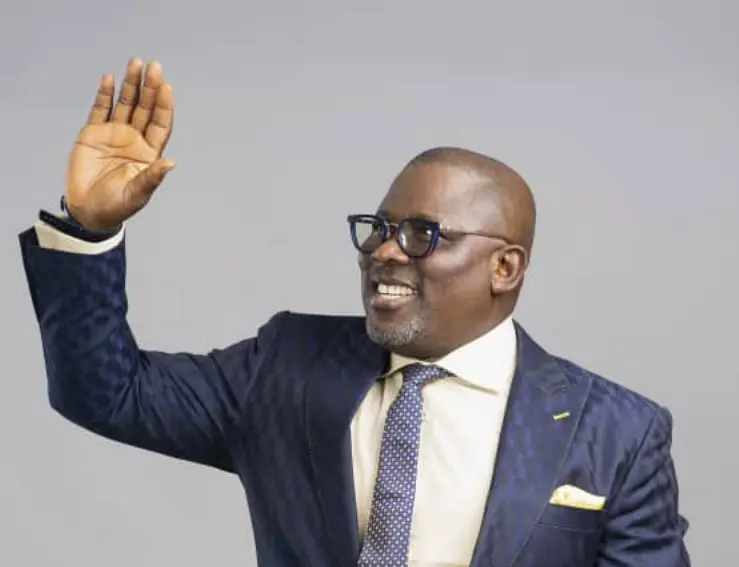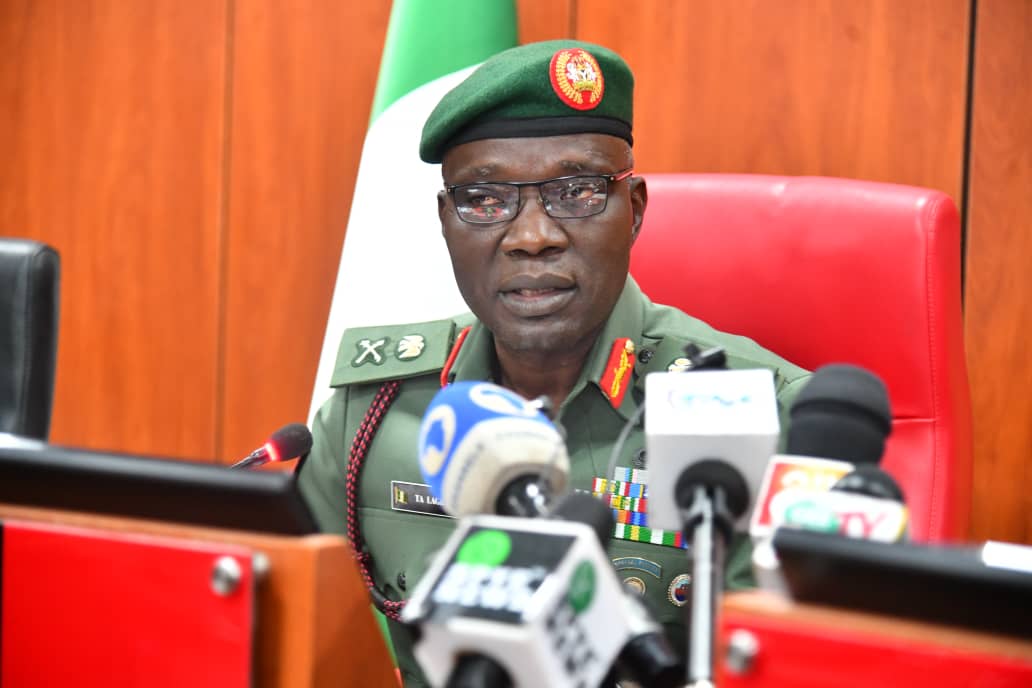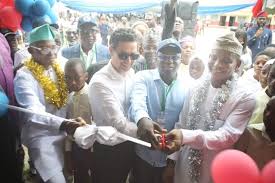City Crime
Order Buhari, NASS To Withdraw Bills To Gag Media, SERAP Tasks African Commission
The Socio-Economic Rights and Accountability Project (SERAP) has asked the African Commission on Human and Peoples’ Rights in Banjul, The Gambia to “issue provisional measures to urgently stop the Nigerian government and National Assembly from supporting and pushing through two bills to gag the media, and impose arbitrary and harsh punishment on journalists, broadcast stations, media houses and media practitioners in Nigeria.”
SERAP said, “The complaint, addressed to the Chairperson of the commission, Mr Solomon Ayele Dersso, and Commissioner and Special Rapporteur on Freedom of Expression and Access to Information in Africa, Ms Jamesina Essie L. King, is brought pursuant to Articles 55 and 56 of the African Charter on Human and Peoples’ Rights and Rule 100 of the Rules of Procedure of the African Commission.”
The complaint followed the move to push through two repressive bills to amend the National Broadcasting Act, and to amend the Nigeria Press Council Act.
The bills are reportedly sponsored by Chairman, House Committee on Information, Hon Segun Odebunmi (PDP, Oyo State).
In the complaint dated June 26, 2021, and signed by SERAP Deputy Director, Kolawole Oluwadare, the organization said, “The push by the Nigerian government and the National Assembly to support and pass the two anti-media bills is unlawful, as passing the bills would be contrary to the country’s obligations to respect, protect, promote and fulfil the right to freedom of expression, access to information and media freedom under Articles 1 and 9 of the African Charter.”
According to SERAP, “These anti-media bills are the latest threats to freedom of expression, access to information and media freedom in the country. The bills are not in keeping with the provisions of the Declaration of Principles on Freedom of Expression in Africa, which supplements Articles 1 and 9 of the African Charter.”
SERAP said, “The commission has the power to request provisional measures from the Nigerian government and National Assembly under Rule 100 of the Rules of Procedure to prevent irreparable harm and threats to human rights including freedom of expression, access to information and media freedom as urgently as the situation demands.”
The complaint reads in part, “The bills include retrogressive provisions that threaten human rights, including freedom of expression, access to information and media freedom, and could criminalize reporting and give the government overly broad powers and oversight over journalists, broadcast stations, media houses and media practitioners.
“If passed into laws, the bills would be used by those in power to intimidate and harass their critics, and to stifle freedom of expression, access to information and media freedom. The bills would have a chilling effect on the media thereby inducing some measure of self-censorship.
“Media freedom, which is an aspect of the right to freedom of expression, is now generally recognised as an indispensable element of democracy. The mass media promotes the free flow of information, which enables citizens to participate in a meaningful and informed manner in the democratic process.
“The actions by the Nigerian government and National Assembly are contrary to Articles 1 and 9 of the African Charter, and have thereby violated Nigeria’s positive obligation under Article 1 to recognise the rights, duties and freedoms and to adopt legislative or other measures to give effect to them.”
“SERAP regularly relies on the media to carry out its mandate in the promotion of transparency and accountability and respect for socio-economic rights of Nigerians.
“The Nigerian government and National Assembly are directly responsible for pushing the bills that would gag the media and impose harsh punishment on journalists, broadcast stations, media houses and media practitioners in the country, action in violation of the African Charter, and therefore, also in violation of Article 1 of the Charter.
“Nigerians, broadcast stations, media houses and media practitioners in the country face a real and immediate risk of violation of their rights to freedom of expression, access to information and media freedom if the anti-media bills are not urgently withdrawn.
“The Nigerian government and National Assembly have failed to produce any evidence that the two bills are necessary or lawful, and in the absence of such, SERAP asks the commission to order the immediate withdrawal of the bills by Nigerian authorities.
“The media also serves as a watchdog by scrutinising and criticising public officials over the way they manage public affairs and public resources. In the performance of these functions, the media’s debate on public issues should be uninhibited, robust and wide-open. Speech concerning public affairs is more than self-expression; it is the essence of self-government.
“A free press is the lifeblood of a healthy democracy, one in which journalists are both benefactors and beneficiaries of human rights and carrying out their professional duties to inform their communities and enable democratic participation.
“Individual journalists cannot do their jobs if the institution of the press is compromised or if the legal protections for that institution are subject to approvals by political authorities.
“The exhaustion of domestic remedies requirements set out in Article 56(5) of the African Charter has been met. There are no effective or sufficient local remedies available to the Complainant.
“Nigerian courts do not entertain cases on the legality of anti-media and anti-human rights bills. Also, one of the lawmakers pushing the bills Mr Odebunmi Olusegun has reportedly boasted that ‘No court will stop us from passing the bills. Requiring SERAP to exhaust domestic remedies in such circumstances would be a mockery of justice.
“Under the bills, the National Broadcasting Commission (NBC) can shut down TV and radio stations ‘in the public interest’ and the press code must be approved by the Minister of Information. The overly broad definition of public interest opens the door for the Nigerian government to crackdown on freedom of expression, access to information and media freedom.
“The bills would also allow the Nigerian government to jail journalists, fine newspapers up to N10million ($20,000) or close them for up to a year if they publish ‘fake’ news. Under the bills, journalists could be held liable for the offence committed by their organisations and can be made to pay heavy fines.”
SERAP, therefore, urged the commission to request the following provisional measures from the Nigerian government and National Assembly, “Immediately withdraw the oppressive bills to gag the media. The first is the bill to amend the National Broadcasting Act, and the second, is the bill to amend the Nigeria Press Council Act.
“Immediately end harassment and intimidation of journalists, broadcast stations, media houses and media practitioners in Nigeria, and to respect the rights to freedom of expression, access to information and media freedom, Unless the African Commission urgently intervenes in this case, there is a risk of irreversible denial of the complainant’s and Nigerians’ rights, which in turn will render nugatory the resolutions and declarations by the African Commission on freedom of expression, access to information and media freedom.
“Give assurances that they will not support and pass the anti-media bills being pushed by Nigerian authorities. The Nigerian authorities should also give assurances that they will fully implement the resolutions and declarations on freedom of expression, access to information and media freedom in the country.
“Undertake a prompt review of Nigerian legal framework and administrative practices on freedom of expression, access to information, and media freedom to ensure their consistency and compatibility with the African Charter, and resolutions and declarations by the African Commission. Pending this, the Nigerian government should take concrete steps to respect, protect, promote and fulfil the rights to freedom of expression, access to information and media freedom, and ensure that journalists and media practitioners are able to carry out their work freely, without any intimidation and harassment”, SERAP added.
City Crime
Delta Attorney-General Laments Hike In Human Trafficking

Delta State Attorney-General and Commissioner for Justice, Ekemejero Ohwovoriole (SAN) has lamented the increasing rate of human trafficking, especially the girl child in the state.
Ohwovoriole decried the increase in his office in Asaba when the zonal commander of the National Agency for the Prohibition of Trafficking in Persons (NAPTIP), Mr Nduka Nwawenne paid him a courtesy visit.
The Attorney-General stated that it was against the dignity of the state and disheartening to see that Delta State now ranked first in human trafficking, overtaking Edo State.
He stressed the need for stakeholders to tackle the menace, adding that if it was one single victim that was rescued, they would be rewarded for their efforts.
Ohwovoriole stated that young girls were the most vulnerable ones in the issue of human trafficking, stressing that children from poor family backgrounds also fall victim to human trafficking.
While saying that their request for an office space in the state would be looked into, to see how the government could be of assistance to them, he assured them of his ministry’s partnership in the fight against human trafficking.
He said that the Task Force on human trafficking and irregular migration, which he chairs, should be having regular meetings.
Earlier, the Zonal Commander of Naptip, Mr. Nwawenne informed the commissioner that Delta state had overtaken Edo state as the foremost state in human trafficking in nigeria.
He told the Attorney-General that their Zonal Command was the first to be established in Nigeria because of the prevailing issues of human trafficking in the area, noting that ika south was the highest in cases of human trafficking as a result of its proximity with edo state.
Nwawenne appealed to the Commissioner and the State Government to provide office accommodation for their officials to operate in Asaba.
City Crime
Army Arrests 50 Foreigners, Others For Job Racketeering

The Nigerian Army said it has arrested 50 suspects, including foreigners, for alleged international job racketeering in Lagos.
The Director, Army Public Relations, Brig. Gen. Onyema Nwachukwu, who addressed journalists in Abuja, on Wednesday, said the suspects were arrested during an operation jointly conducted by the Army and the Nigeria Immigration Service.
He also disclosed that no fewer than 13 criminals were killed and 88 arrested during various operations across 20 states of the federation.
Among those arrested include 50 suspects comprising foreigners who were nabbed for alleged International job racketeering.
Onyema said, “In the South-West region, on November 2, 2023, troops of 9 Brigade Nigerian Army in conjunction with personnel of Nigerian Immigration Service, Lagos State Command, conducted a raid operation on a suspected criminal hideout at Ifako Ijaye.
“During the operation, 50 suspects, including foreigners who specialise in international job racketeering, were arrested. In a similar development same day, the same troops arrested two suspects at a hotel in Ogba in the Ikeja LGA.
“The arrest was in connection with the murder of one Mallam Idris Ardo, the Ardo of Panya Village in Plateau State. Preliminary investigation revealed that one of the arrested suspects masterminded the killing of Ardo and fled the community since the incident occurred.”
City Crime
Elder Statesman Charges FG On Judges, Magistrates’ Security
An elders statesman and advocate of oil rights in the Niger Delta, Rev Sokari Soberekon, has called on the Federal Government to beef up security for High Court Judges and Magistrates in the country. The iconoclastic doctor of humanities made this plea while addressing newsmen during the just concluded 2023/2024 rededication of the legal year of the Rivers State Judiciary held at the St. Cyprian’s Anglican Church in Port Harcourt last Thursday.
Soberekon stressed the essence of maximised security for Judges and Magistrates in Nigeria to ensure prompt and fearless dispensation of justice, equity and fairplay. He, maintained that apart from armed Police orderlies, the Judges and Magistrates should be legally authorised to keep personal arms for self defence when necessary, adding that this innovative policy would enhance the desired environment for an independent judiciary.
According to the octogenarian minority rights activist, the judiciary is the sanctuary of justice and equity.
He recalled the circumstances surrounding the gruesome murder of the former Federal Attorney General and Minister of Justice, Late. Chief Bola Ige.
Soberekon noted that, in spite of the retinue of official security aides attached to the late former Governor of Oyo State, Ige would not have been murdered if he was personally armed on that fateful day of his demise.
Soberekon emphasised the need to shun eye service in the nation’s polity.
He, however, maintained that the only Oga in politics is God Almighty, who he said uses people to install others in office.
Soberekon recalled the meeting he had with King Alfred Diete-Spiff in Lagos from where the pioneer Governor of the State started planning the blueprint of the old Rivers State.
He said what Rivers State needs now is peace, and applauded the placard with the description, ‘Peace’, displayed during the rededication ceremony.
He noted with delight that while delivering a sermon at the occasion, the Vicar of the church advised Nigerians to give peace a chance and also to build a nation where peace and justice reign.
-

 Oil & Energy5 days ago
Oil & Energy5 days agoTroops Recover N637m Worth Stolen Crude, Arrest 36 Suspects
-

 World5 days ago
World5 days agoBreathtaking New Paintings Found At Ancient Roman City
-

 Politics2 days ago
Politics2 days agoNigeria Not Ripe For Diaspora Voting -NBA Chieftain
-

 Rivers2 days ago
Rivers2 days agoIYC Demands Apology Over Arrest Of Soboma Jackrich
-

 Maritime5 days ago
Maritime5 days agoNigerdock Assures Host Communities On Robust Relationship
-

 Sports5 days ago
Sports5 days agoGhana Legend Names Okocha Africa’s Best
-

 News5 days ago
News5 days agoNDLEA Recovers 900,000 Opioid Pills, 1,347.4kg In Seven States
-

 News2 days ago
News2 days agoArmy Detains Two Soldiers Over Alleged Theft In Dangote Refinery

